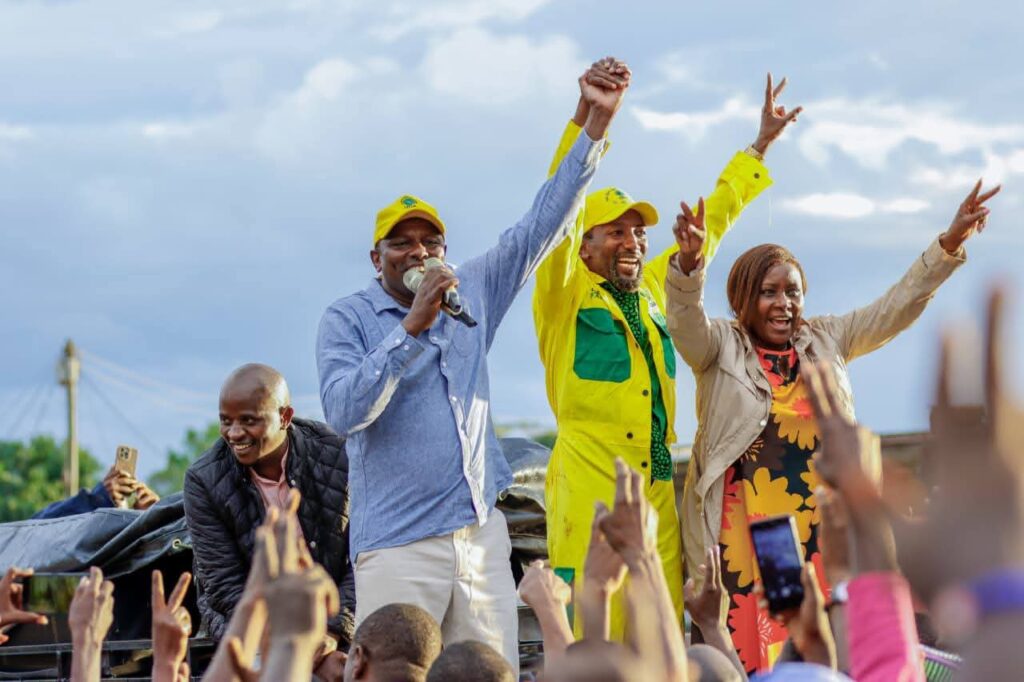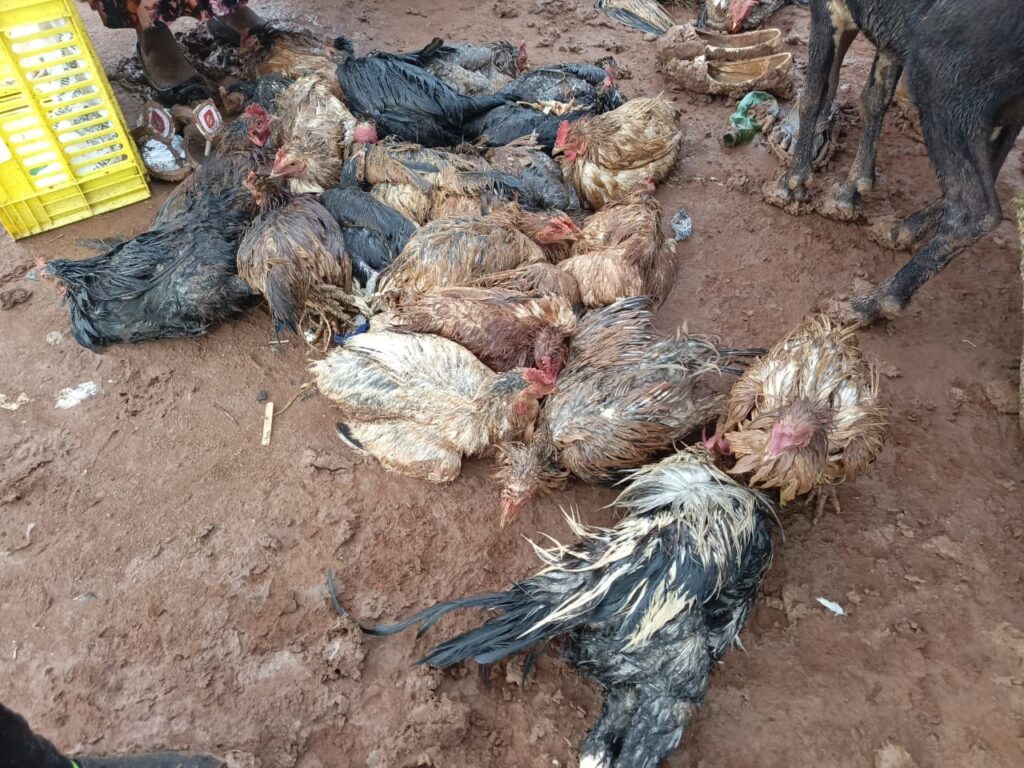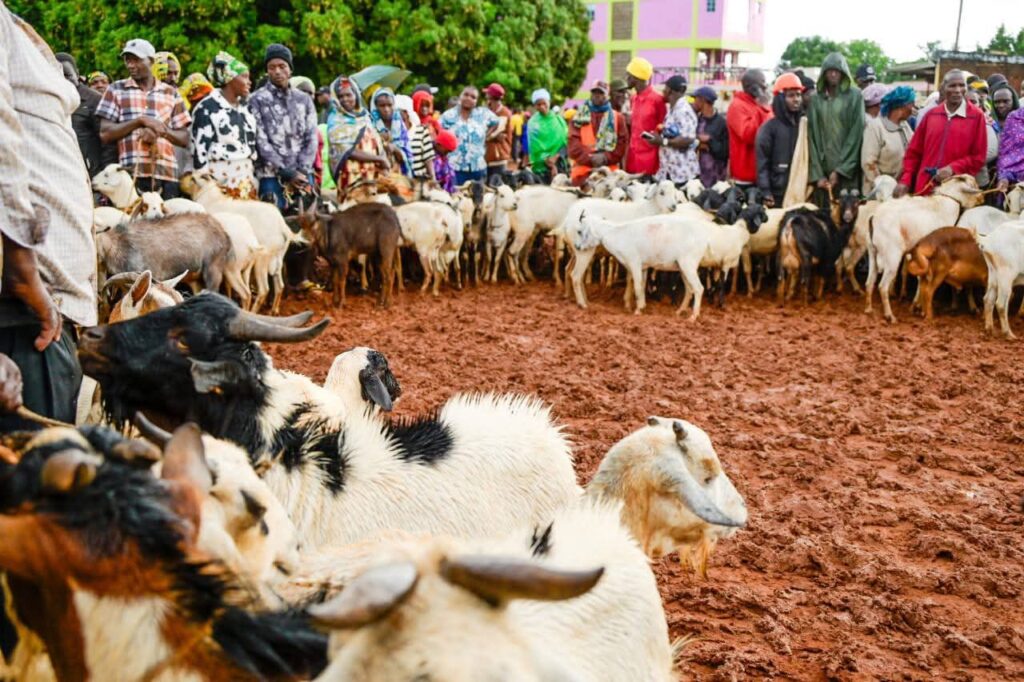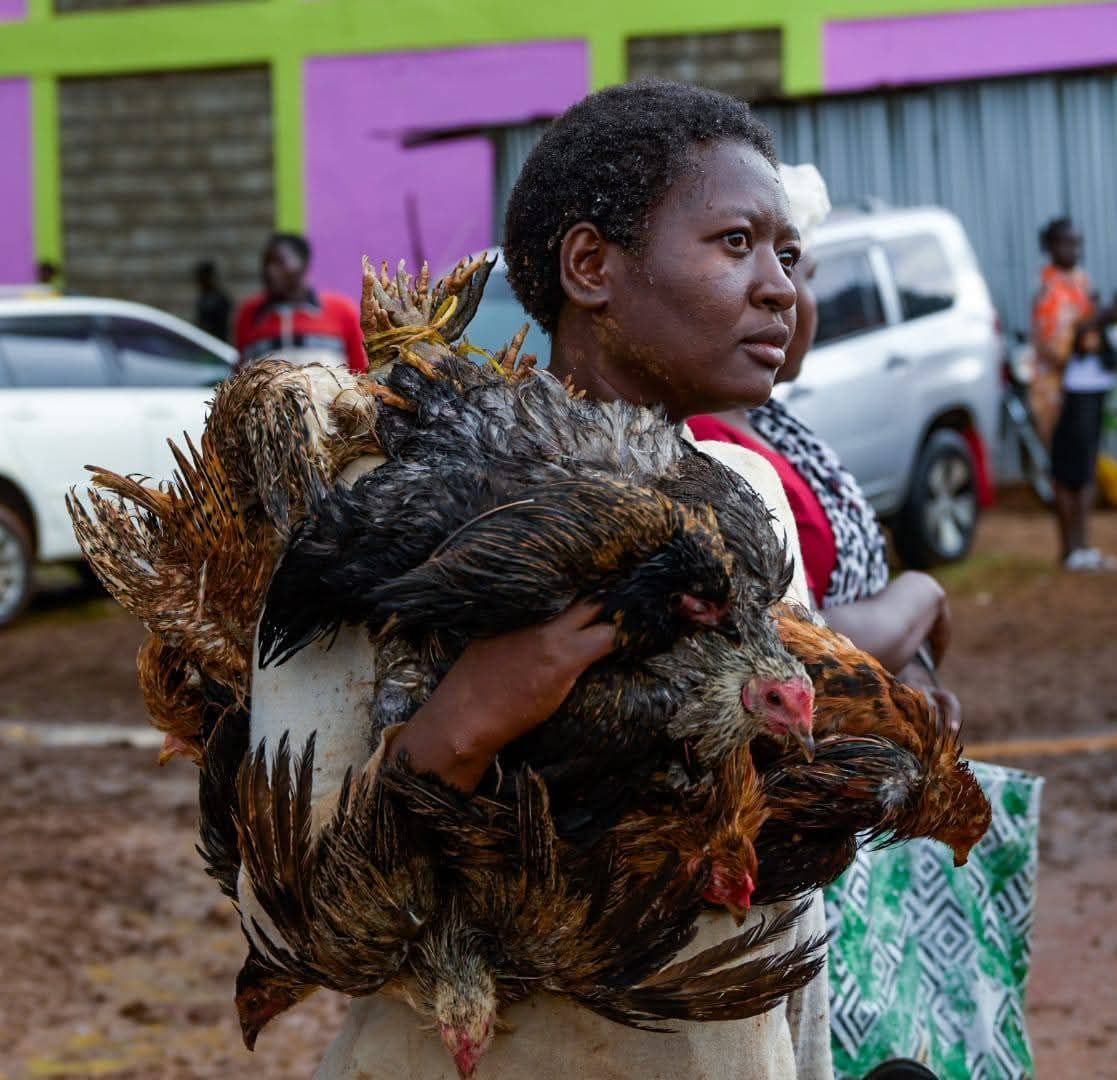By Murugi Ndwiga
Social media has been a buzz of activity since Saturday evening following a goat auction that was meant to double as a campaign platform for UDA candidate Leonard Wamuthende.

What was billed as a grand event to empower local farmers and boost support for the Kenya Kwanza candidate ended in chaos, disappointment, and soggy despair. Farmers who had flocked to Ishiara Market with their livestock were left counting losses after a heavy downpour turned the much-hyped Leo wa Mūthende Goat Auction into a muddy fiasco.
A Rain-Soaked Reality
By mid-afternoon, the sky opened up, unleashing torrents of rain that drenched everything, the livestock, the traders, and even the hopeful mood of the crowd. Goats, chickens, and rabbits were left shivering and soaked, while farmers waded through thick mud, desperately trying to salvage what they could.

“It felt like nature was sending us a message,” said a trader from Kanyuambora, as she watched her chickens huddle in the rain. “We were all drenched, animals, farmers, and even the journalists. It was like being washed of our hopes.”
Another trader, Ken Kago, said he had brought 43 goats, 20 rabbits, and 40 chickens but hadn’t sold a single one by the time the market closed.
“We had bought livestock in advance expecting big buyers and fair prices, but everything went to waste,” he lamented.
Politics in the Mud
The goat auction, organized by UDA’s Leonard Muriuki, popularly known as Leo Wamuthende, was not just a farmers’ event, it was a full-blown political showpiece. Kenya Kwanza leaders turned out in force, turning Ishiara Market into a campaign arena ahead of the Mbeere North parliamentary by-election.
Though President William Ruto did not attend, he sent Kikuyu MP Kimani Ichung’wah with a hefty Sh3.5 million to purchase goats. Deputy President Kithure Kindiki contributed Sh1.5 million, while Governor Cecily Mbarire and Ichung’wah each added another Sh500,000. The spending spree, officials said, was meant to boost local trade and show government solidarity with rural farmers.
Governor Mbarire used the event to drum up support for Wamuthende, calling him “the only candidate with the vision and energy to move Mbeere North forward.”
“With Muthende, we will ensure that our children have better schools, our farmers have better markets, and our youth have jobs. You cannot get these things in the Opposition,” she declared.
Ichung’wah echoed her sentiments, telling residents that staying aligned with the government was key to continued development.
“The people of Mbeere North have shown they want to remain in government because they know it’s the only way to keep benefiting from projects,” he said.
Public Service Cabinet Secretary Geoffrey Ruku also took a swipe at the Opposition, claiming their “politics of fake promises” had no place in Mbeere North.
“The people have moved too far with the government to look back,” Ruku said confidently.
More than ten Principal Secretaries and heads of parastatals attended the event, underscoring the political weight the Kenya Kwanza coalition placed on the by-election.
From Promise to Disappointment
Yet, beneath the fanfare and political speeches, the reality on the ground was far from rosy.
As rain continued to pour, farmers, who had arrived from across Embu County, struggled to keep their livestock alive and dry. The lack of shelters or tents worsened the situation, and many animals suffered in the cold and mud.

By nightfall, disappointed farmers trudged home with their unsold goats and chickens, their dreams of profit washed away by the rains and unfulfilled promises.
What was meant to be a celebration of enterprise and empowerment ended as a day of frustration and loss.
A Symbolic Storm
The heavy downpour, some said, was more than just weather, it was symbolic.
It washed over political pledges, blurred the line between campaign and community event, and left behind a trail of mud and mistrust.
As the Mbeere North by-election draws closer, the goat auction may be remembered not for its millions in pledges or political speeches, but for the soaked animals, the angry farmers, and the haunting image of hope drowned in rain.
For many who had pinned their expectations on the day, one question lingers:
Was it really about the goats or the votes?


I don’t think the title of your article matches the content lol. Just kidding, mainly because I had some doubts after reading the article.
**mitolyn**
Mitolyn is a carefully developed, plant-based formula created to help support metabolic efficiency and encourage healthy, lasting weight management.
**prodentim official website**
ProDentim is a distinctive oral-care formula that pairs targeted probiotics with plant-based ingredients to encourage strong teeth, comfortable gums, and reliably fresh breath
Thank you for your sharing. I am worried that I lack creative ideas. It is your article that makes me full of hope. Thank you. But, I have a question, can you help me?
I don’t think the title of your article matches the content lol. Just kidding, mainly because I had some doubts after reading the article.